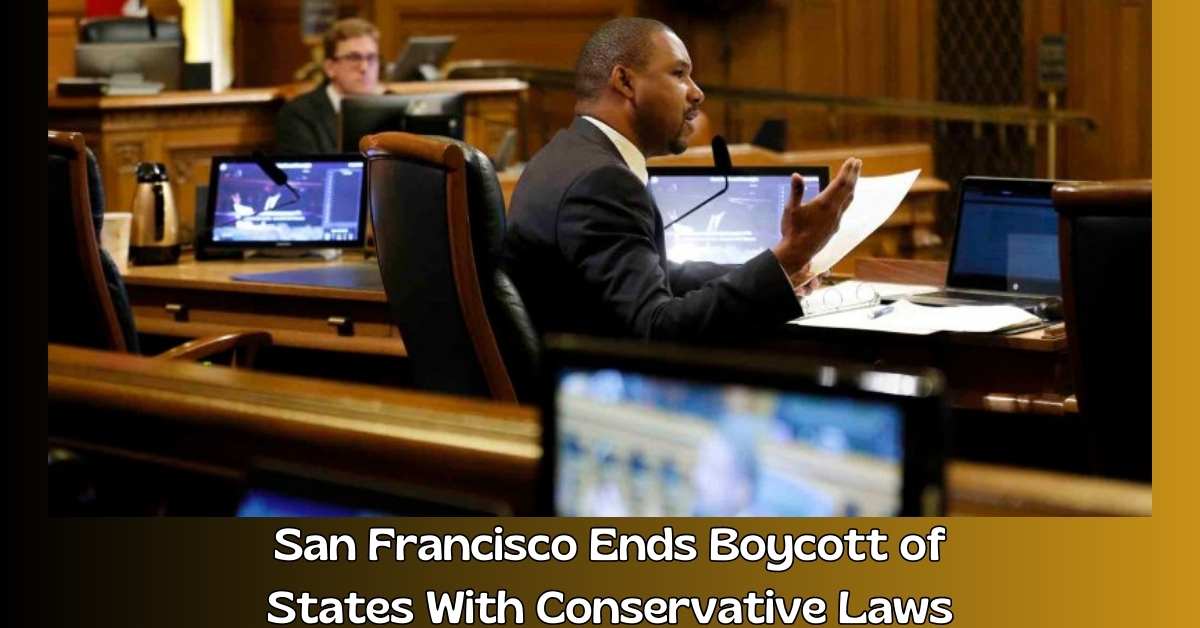In the past few years, a number of conservative laws have been passed in the United States. These laws have caused a lot of debate and led to boycotts from different groups and people. San Francisco was one of the places that took part in these boycotts. The city had a policy of not doing business with states that passed laws that were seen as unfair or backward.
But this policy just ended because San Francisco officials lifted the ban and started doing business with these states again. This choice has started a discussion and brought up questions about how cities affect national policy and how political polarization affects business relationships.
San Francisco Ends Boycott of States With Conservative Laws
San Francisco has ended its boycott of 30 states that have passed laws it disagrees with on specific social problems. A local ordinance that forbade city employees from visiting and conducting business with businesses in states with abortion, voting, and LGBTQ political legislation that the local politicians disapprove of was repealed by the Board of Supervisors.
The Board of Supervisors came to the conclusion that the legislation was expensive and barely affected the laws of other states. Rafael Mandelman, the supervisor, said to The San Francisco Chronicle, “It’s not accomplishing the goal we want to accomplish. Our government is becoming less effective as a result.
One month after the board agreed to exclude construction contracts from its boycott, the repeal was approved 7-4. The report states that San Francisco Mayor London Breed is in favor of scrapping the boycott law. According to Walter Olson, a senior fellow at the Cato Institute, such boycotts have no place in the United States in response to the news.
You can also read our most current articles here:
In a tweet, Mr. Olson stated that these boycotts were “a grotesque affront to interstate comity,” including California’s ban on employee travel to a dozen other states. “There must be no BDS between states if we are to move past the ‘national divorce’ nonsense and put together a tolerable level of national unity.”
The boycott was first enacted by the supervisors in 2016 in response to states passing conservative laws pertaining to LGBTQ issues. However, they eventually amended the law to add restrictions on abortion and some modifications to voting regulations.
According to a report from Carmen Chu, the city administrator, no states modified their laws as a result of the boycott in San Francisco, as reported by The Chronicle. The boycott, however, cost the city money because it resulted in staffing costs and lost contractual chances.
There hasn’t been a single law modified. According to Supervisor Matt Dorsey, “We have decreased the competitiveness of competitive bidding.” If San Franciscans understood how many hoops they must jump through and how much more expensive city contracts are, I believe they would be incensed.
